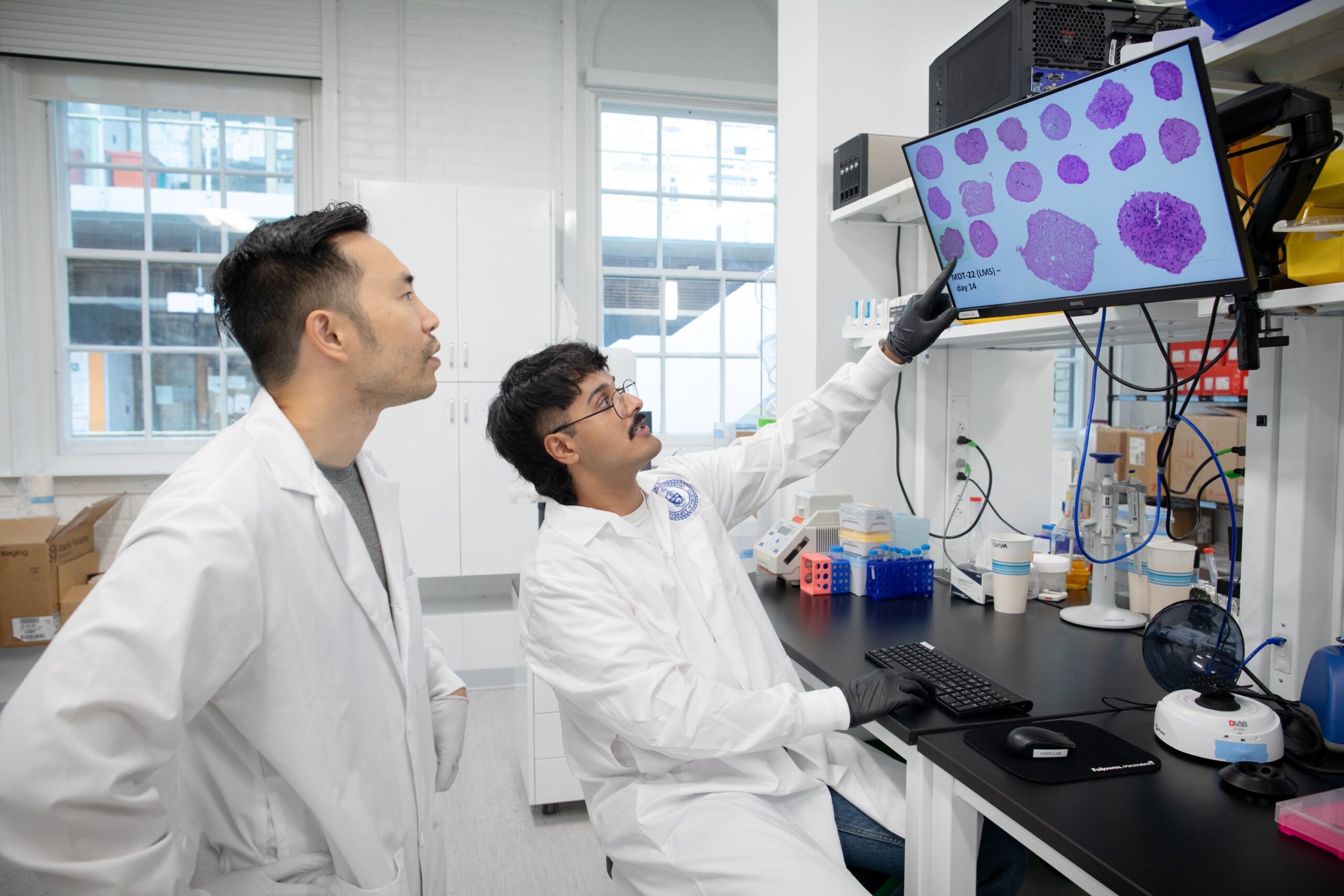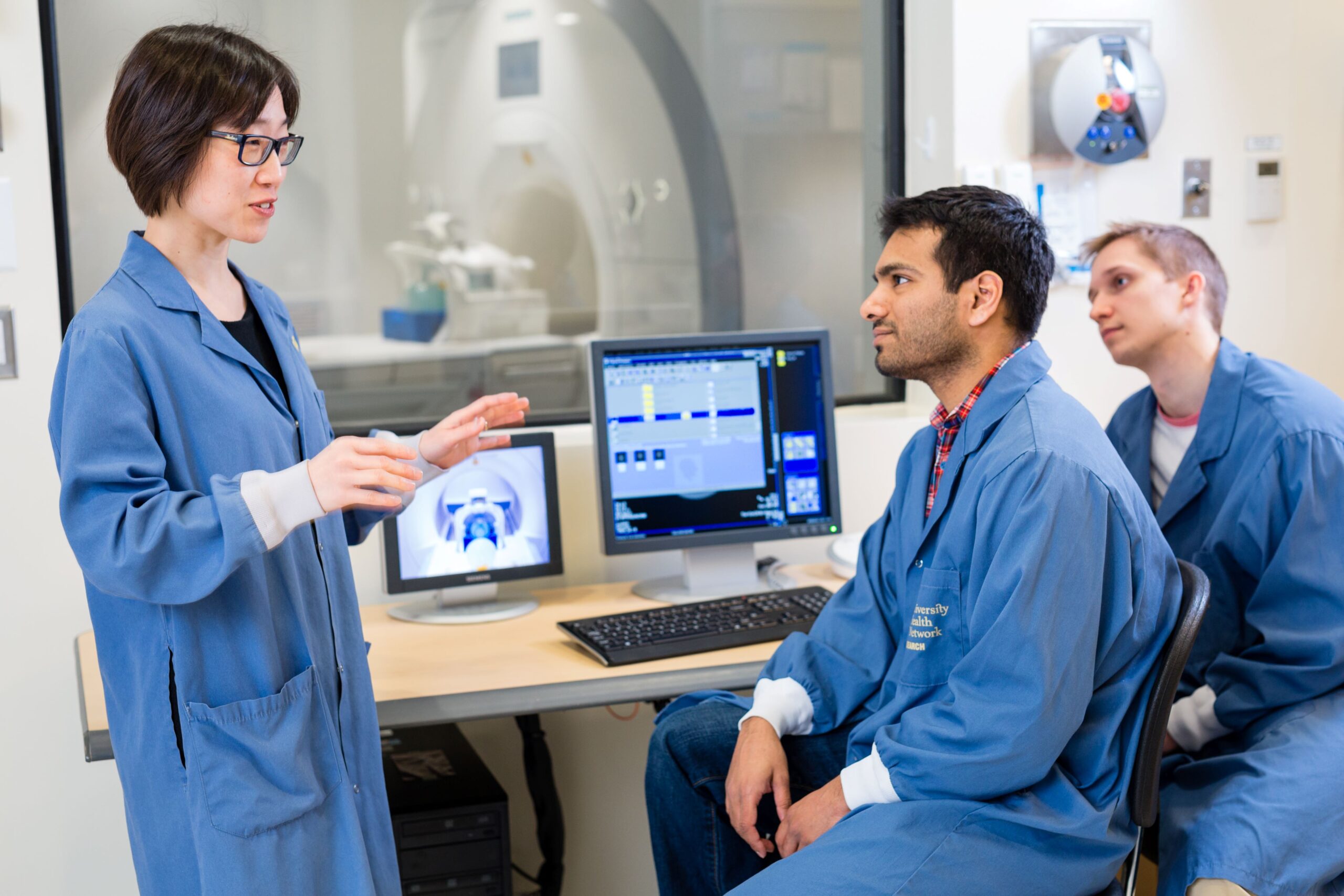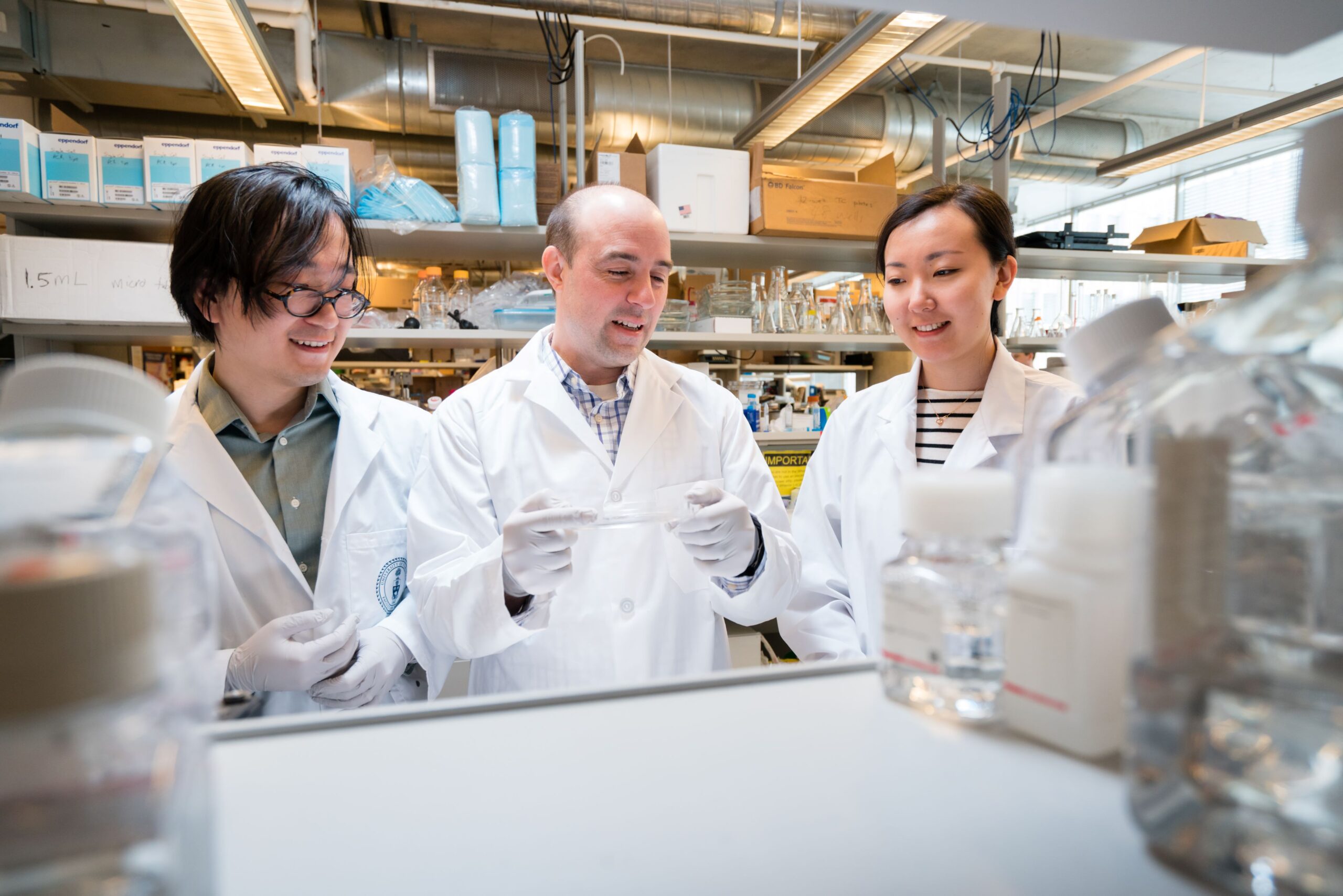Molecular Engineering
Molecular engineering aims to advance disease detection, customize drug delivery and improve health-care outcomes with faster and more precise technologies and systems.
Quick Navigation

Nanotechnology
Using biological building blocks for treatment and diagnosis
Professor Leo Chou is pioneering the future of molecular science to tackle some of the toughest challenges in healthcare. Nature has perfected the art of creating molecular machines—tiny, intricate tools that power life itself. Inspired by these natural wonders, the Chou lab is working to design and build custom molecular machines that can match—and even surpass—Nature’s creations.
By combining DNA nanotechnology with cutting-edge techniques in chemistry, protein engineering, and computer modeling, they are crafting molecular systems that can operate with precision and durability inside and outside of living cells.

Molecular Imaging
Smarter scans for earlier cancer detection
Professor Hai-Ling Margaret Cheng was working as an electrical engineer in the aerospace and defense industry when she realized the signal-processing techniques she was using could also enhance magnetic resonance imaging (MRI) scans.
Today, her team is dedicated to improving MRI technology. Specifically, the Cheng Lab looks at ways to modify and enhance chemicals that give off a strong magnetic resonance signal, known as contrast agents, to accentuate visual accuracy of specific tissues and organs. Her lab is also developing novel, rapid imaging approaches to give us information about tissue physiology and functional dynamics.
Her developments in this area have proven promising in earlier cancer detection and stem cell observations for human tissue repair.

Systems Biology
Shrinking the lab—mini diagnostic tools for rapid, on-site results
Professor Aaron Wheeler is taking the lab to you.
His team builds miniature labs using digital microfluidics — a liquid-handling technology that can analyze tiny drops of chemical and biological fluids on site. Using electrostatic forces, their lab-on-a-chip device can manipulate these samples and probe them with built-in sensors for rapid analysis, all on something the size of a credit card.
The technology aims to allow advanced diagnostic tests to be performed at a patient’s bedside or in remote places around the world to give accurate results in less time.
Read more news about molecular engineering
MRI technique enables long-term tracking of transplanted stem cell–derived heart cells
Dr. Keyu Zhuang (left, currently a Specially Appointed Research Fellow at Clinical Cardiovascular Research Institute at Shanghai University School of Medicine ) and Professor Hai-Ling Margaret Cheng (right) at the Institute of Biomedical Engineering at the University of Toronto have developed an MRI method to track transplanted stem-cell-derived heart cells over time, enabling scientists to monitor their survival and improve therapies for heart damage such as that caused by heart attacks (Photo: KITE Studio, Tim Fraser).
Two BME Professors Awarded Canadian Foundation for Innovation Funding
Professors Aereas Aung and Freeman Lan from the Institute of Biomedical Engineering have been awarded funding from the Canada Foundation for Innovation’s John R. Evans Leaders Fund in recognition of their innovative research in vaccine development and microbiome analysis.





